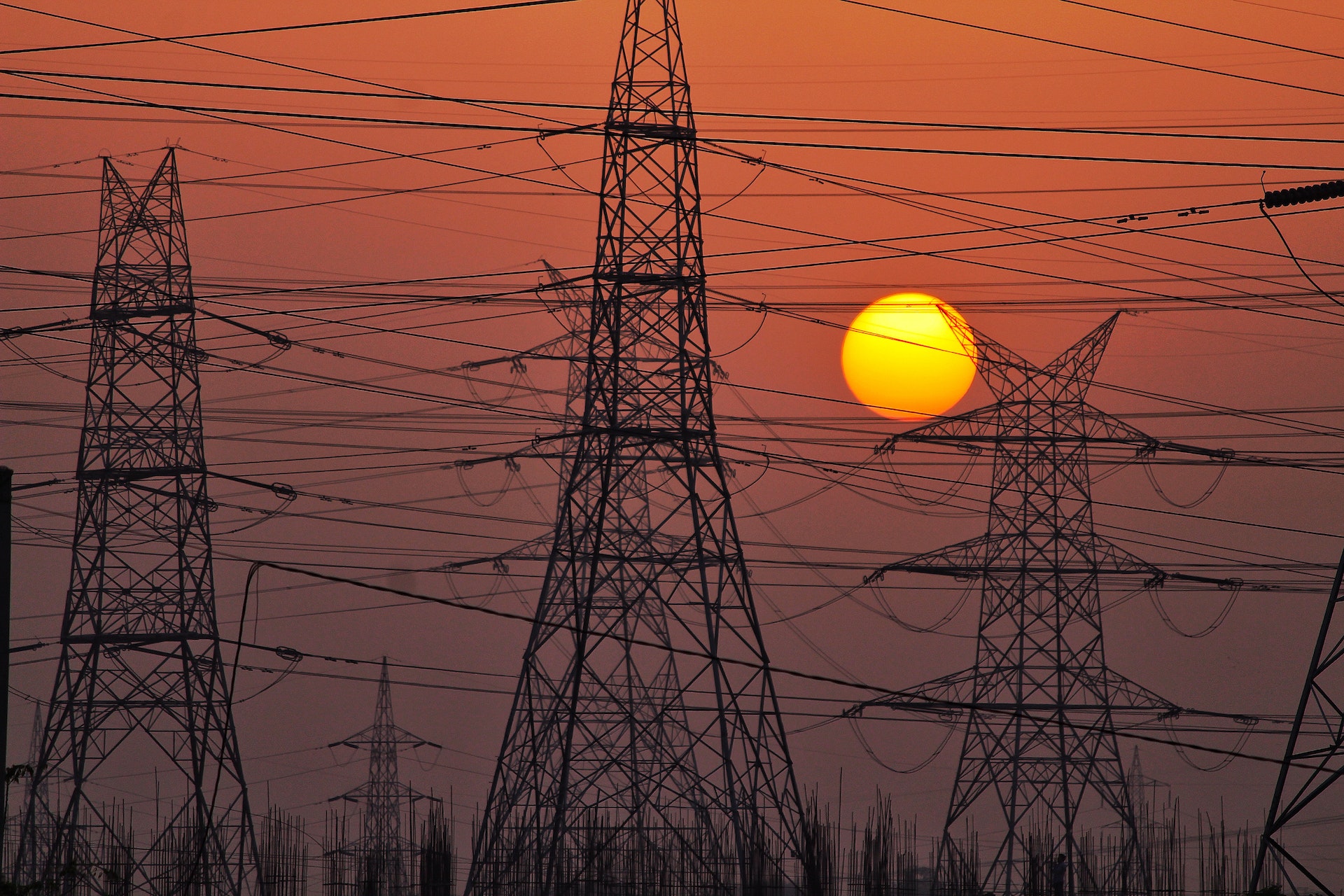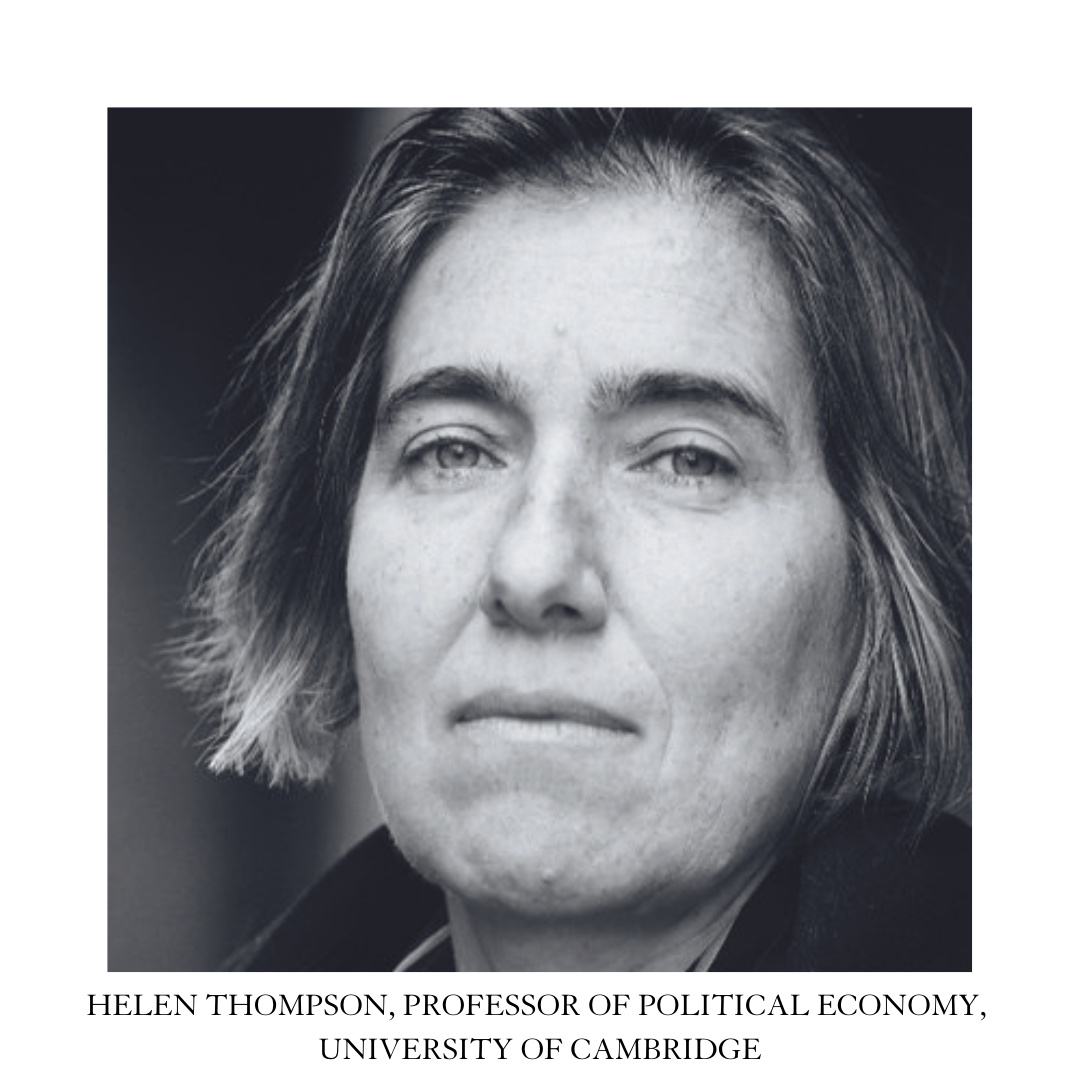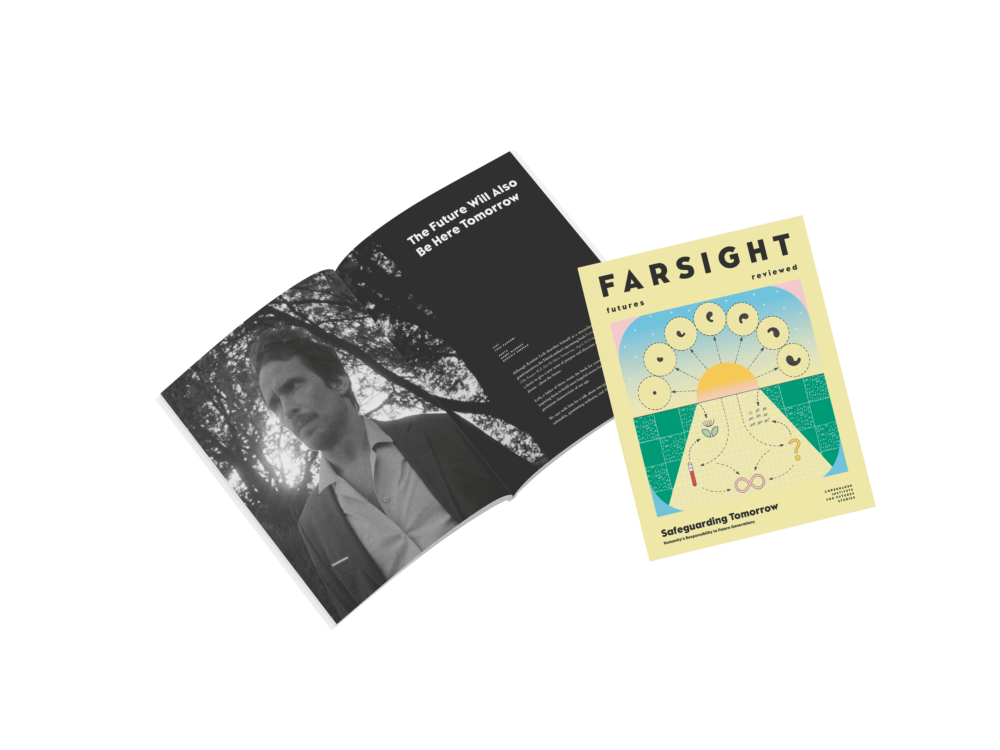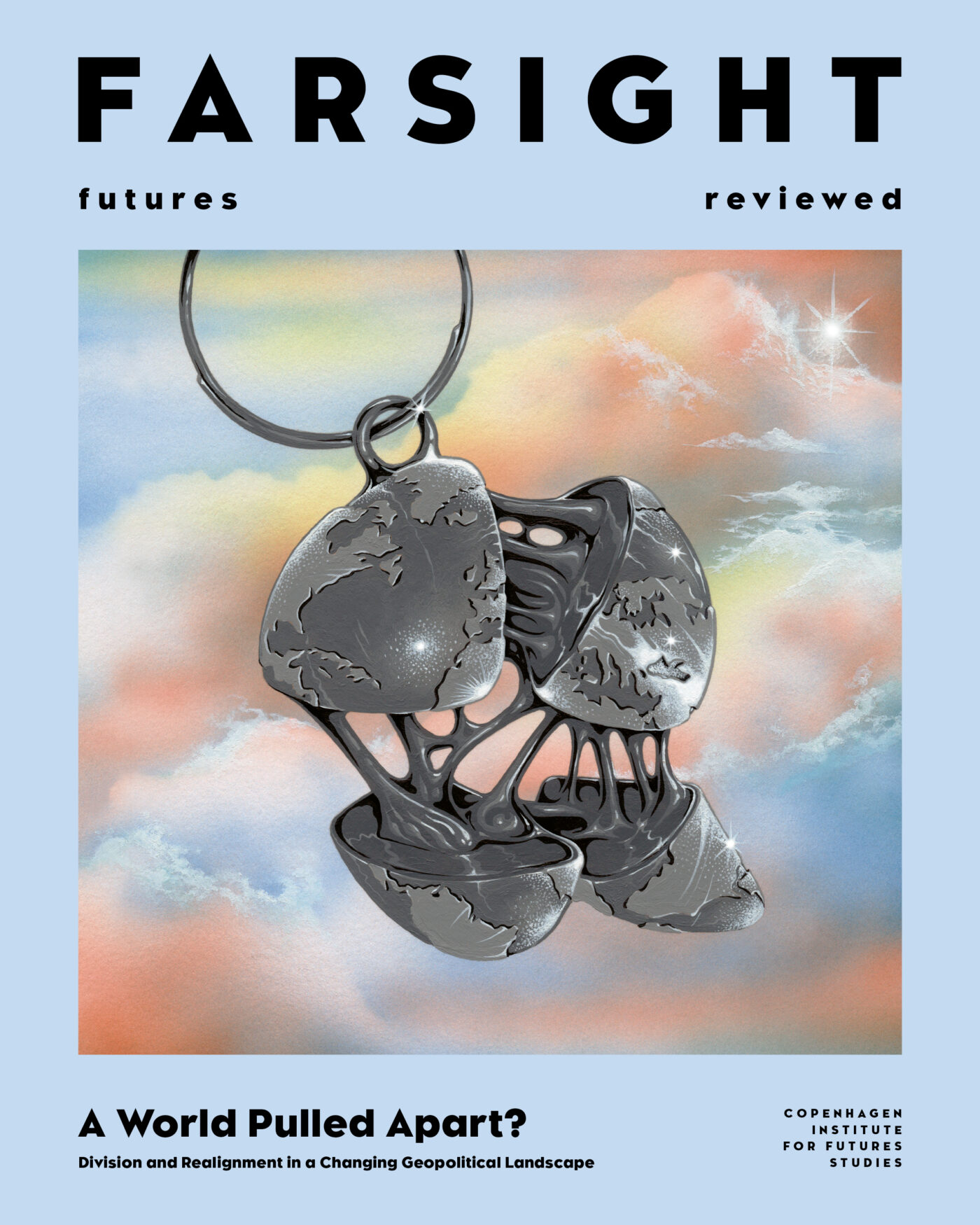
In turn, we use cookies to measure and obtain statistical data about the navigation of the users. You can configure and accept the use of the cookies, and modify your consent options, at any time.

‘Hard Times In The 21st Century‘
“Things are going to get tough – we’re trying to transform the energy basis of our civilization”
Interview with Professor Helen Thompson

Natural resources like oil and gas played a crucial role in shaping the geopolitics of the 20th century. Similarly, climate change, the green energy transition, and competition over rare-earth minerals and other resources are sure to have a significant impact on the 21st. In her new book, Disorder: Hard Times in the 21st Century, Professor of Political Economy at Cambridge University Helen Thompson takes a close look at the long history of our present political moment and investigates to what extent the turbulence experienced today originates in problems generated by our addiction to fossil fuels. Thompson’s book also alludes to the idea that the uneven global access to energy, metals, and minerals will remain geopolitical issues – perhaps even flashpoints for conflicts – for decades. There is trouble ahead, Thompson warns, unless we realise the complexity of our situation and manage to navigate through the green energy transition in a way that benefits the broad majority.
Why have you written this book?
I was initially driven by the desire to give a deep history of the events leading up to the political shocks of the 2010s, namely Brexit and the election of Donald Trump. I started from a belief that energy is a more significant part of the story than what is usually understood. Having said that, when I first began writing I don’t think I intended to make energy quite as central to the story as it ended up becoming. But that just shows how important it really is in terms of shaping geopolitics.
When I started writing the book in the summer of 2019 it was clear that something quite big was going on. There was a real emerging awareness around the looming climate catastrophe, as well as the acceleration – albeit not fast enough – of the green energy transition. I feel that 2019 was a bit of a watershed year in terms of climate. There were climate strikes happening across the world alongside a real willingness of governments to make proper Net Zero commitments for the first time. I really wanted to connect the dots between the past, the present, and the future, as much as we can predict it. I chose the subtitle ‘Hard Times in the 21st Century’ as an homage to Charles Dickens’ novel Hard Times which was a profound critique of the industrial civilisation of his time.

Broaden your horizons with a Futures Membership. Stay updated on key trends and developments through receiving quarterly issues of FARSIGHT, live Futures Seminars with futurists, training, and discounts on our courses.
BECOME A FUTURES MEMBERDo you think that the shift away from oil and gas will lead to a general geopolitical de-escalation?
That’s a big question. I think that it would be naive to believe that the geopolitics of energy is going to end with the green energy transition. For example, there is going to be – in fact there already is – a geopolitics around metal extraction, supply chains, and production, one that is currently dominated by China. I think you can already see the fear that this has caused in the United States and across the European Union. What is less known is how much this will resemble the geopolitics of oil and gas. In at least one respect I believe it will be quite different: metals are not as arbitrarily distributed under the Earth’s surface as oil and gas are, and this centralisation of the supply will shape the geopolitical dynamics.
I think it’s also the case that as we continue down the road of electrification, the security concerns over the supply of electricity will matter much more than they do today. Electricity is going to be best organised nationally or in blocs – like within the European Union – because you can’t easily transmit it over the same kind of distances that you can move oil and gas. For this reason, I think we can expect the geopolitics of electrification to be less confrontational than what is the case with fossil fuels.
Increasingly, oil and gas will also become difficult to extract at commercially viable prices. I think it is quite probable that this will lead to heightened geopolitical competition around the supply of these types of resources. We are already seeing that now with the energy crisis caused by Russia’s war in Ukraine.
So, overall, I would say it’s a mixed bag.
Do you think the control of future sustainable energy infrastructure like wind and solar could be weaponised in the way oil and gas are now?
I’m not sure. Take, for example, the European Union, where there’s likely to be a unified electricity infrastructure and market. This will probably strengthen efforts for continued peace there, as countries within the bloc are not going to wage war on each other nor use electricity supply as a weapon against neighbouring nations. Elsewhere, of course, it is much harder to predict and could be a cause for concern.
Overall, I think it’s easier to see how other kinds of resources can be weaponised by nations to achieve geopolitical goals. When it comes to metals and rare- earth minerals, China currently has the capability to do this, which is essentially what happened in 2010, when a fishing dispute with Japan in the South China Sea led to China temporarily halting shipments of rare earth minerals. I can definitely see resource control used as an ongoing weapon for China going forward.
How do you think the unfolding climate crisis will impact geopolitics later this century?
I think the geopolitical consequences of climate change are already playing out, including in the Arctic where the risk of a conflict is growing. That risk exists partly due to Russia’s positionthere, and the probability that they will do further oil and gas exploration in the region. But it’s also related to changes in Arctic climate, which are already well underway, causing massive scale sea-ice loss opening up new transportation routes in Arctic waters.
I also think that you can’t really underestimate the political disruptions of the mid-to-late 2010s without considering the effects of migrations that are partly or fully caused by climate change. This includes the Brexit vote, the rise of Alternative for Deutschland in Germany, the success of the National Front in France, and the election of Donald Trump in the US. Migration has become an issue that affects national politics across the world. If we were to see significant movements of people out of the Middle East and North Africa due to climate change in the decades to come, I think we can expect that it will have similarly disruptive political effects in Western democracies as what we saw in the middle of the 2010s.
Do you personally worry about the risks of political disruption caused by the green transition?
The thing that makes me pessimistic is that those who govern seem to have no clear understanding of the political changes that will follow from the green transition. It’s neither much discussed nor recognised just how divisive the politics of this energy transition may become. We could enter a phase in which the short-to-medium term sacrifices are being asked of the people who are least able to bear them. This possible, or even likely, future scenario does make me pessimistic because we could end up having an energy transition that leads to a relatively small group of wealthy people being able to maintain some version of their present lifestyles – with regards to energy options – while others are asked to consume significantly less energy, or are priced out of electric vehicles, for example. That, I think, would not be a morally good place to find ourselves, and might also prove to be a pretty dangerous political junction to reach.
What makes you optimistic about the future?
I think that we are currently living through structurally hard times, as the title of my book suggests. Things are going to get tough in the foreseeable future because we’re trying to transform the energy basis of our civilisation. That is no small feat.
But the thing that makes me more optimistic is that I think there has been something of a reckoning these past few years, which has done away with a lot of previous complacency. I would include the pandemic in that, as well as the war in Ukraine, and a general growing sense of just how difficult things are. I believe this growing understanding and greater awareness of the complexity of the situation in which we now live is a prerequisite for building a positive communal way forward.

This is a featured article from Issue 03 of FARSIGHT: A World Pulled Apart?